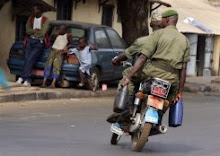SSR is a key priority for the DRC and the lack of a broader national debate on SSR policy and programming priorities continues to compromise progress on this issue. The local leadership is crucial in SSR and only the Congolese government can ensure that the process is completed. The will amongst the political and military establishment to reform the security system is largely lacking in the DRC. This is due at least in part to the way in which impunity was entrenched in the political and military classes and that is still ongoing, especially in the Eastern DRC. As a result, attempts to create a national Republican army with clear lines of command and control, as well as democratic oversight, will challenge the power bases and income-generating sources of influential people.
A number of international partners, including Angola, South Africa, Belgium, France and the United States, are engaged in bilateral security sector reform initiatives, particularly in support of training and capacity-building for the Congolese army, the Forces Armées de la Republic Democratic du Congo (FARDC). This initiative is coordinated within the so-called “contact group”. This group has however lost much of its impact and most initiatives are again bi-lateral and donor-driven. The European Union Mission of Assistance for Security Sector Reform has meanwhile conducted a census of FARDC and established secure payment procedures for 16 battalions. However, there continues to be limited coordination among international partners on SSR. The UN mission in the DRC, MONUC, is again seeking to expand its working group on SSR to include bilateral partners in addition to the European Union Mission of Assistance for Security Sector Reform and the European Union Police Mission in an effort to enhance information-sharing and move towards more strategic coordination on this critical issue.
The lack of an overall vision and doctrine is a serious challenge to consistent and coherent SSR, particularly of the army. In 2007, the Congolese government convened the Security Sector Roundtable, bringing together Congolese and international stakeholders on SSR. Originally only army and police reform were tabled, but justice system reform was added in February 2008. On 25 February 2008 the long awaited round table on Security Sector Reform in the Democratic Republic of Congo (DRC), which aims at a reform of the FARDC and the National Congolese Police (PNC), was held in Kinshasa after being postponed several times. The round table gathered some 200 participants, including international and national experts. The meeting was organized around four committees: on armed forces, justice, police and crosscutting issues. The round table provided an important opportunity for the Government of the DRC to present its approach to security sector reform to international partners. The round table focused on the government’s presentation of a new master plan for military reform and a road map based on four pillars of dissuasion, production, reconstruction and excellence. The master plan makes provision for three overlapping phases spanning 12 years. The short-term phase, from 2008 to 2010, is based on the following:
-
The training and deployment of 12 battalions of a rapid reaction force drawn from elements yet to undergo brassage, as well as from the 18 existing integrated brigades
-
The establishment of the legal framework necessary for army reform; and
-
The completion of the transitional disarmament, demobilization and reintegration and army integration programmes.
The international community was very optimistic about the plan and South Africa, with the support of The Netherlands, immediately supported the training of one of the Rapid Reaction Forces. After the training the Rapid Reaction Force was split up into smaller groups to support the Congolese army fighting in Eastern DRC against General Laurent Nkunda. The conflict that started in October 2008 has brought the implementation of the “master plan” to a standstill. MONUC and the international community were surprised when the Congolese government earlier this year announced an updated master plan.
MONUC is pursuing a three-pronged approach to implement its mandate in support of SSR. This approach calls for political engagement on SSR at the highest levels, and technical and capacity-building assistance as well as operational support, particularly in the areas of police and military training, with the aim of supporting the development of a comprehensive and sustainable national strategy on SSR. This is nothing new and again highlights the issue of coordination as key to a successful SSR process. On the strategic level, it is important to compile “white papers’ for the three sub-sectors, defence, police and justice. The completion of the DDR process, the MONUC three- pronged approach and consensus on coordination between the external role players and how to move forward with SSR will be key in the next few months on the successful restart of the SSR process in the DRC.
By Henri Boshoff, Head, Peace Missions Programme, ISS Tshwane (Pretoria)

No comments:
Post a Comment